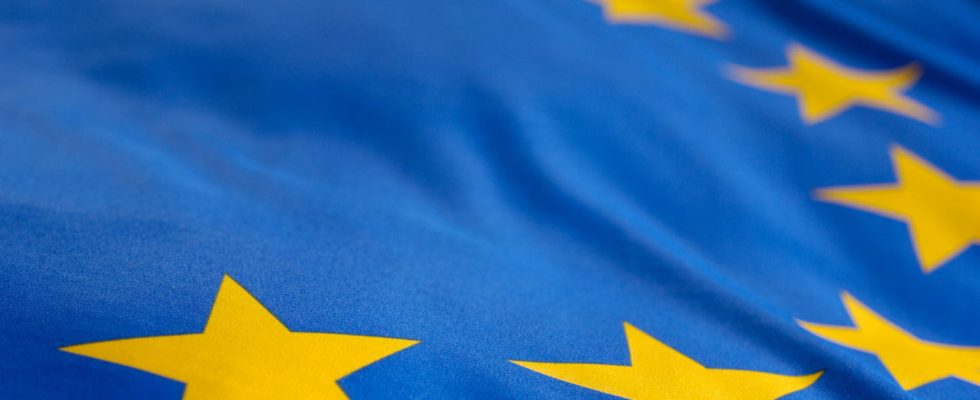Apple, Google, Amazon, Microsoft, Meta are among 19 tech companies and services that Europe will bring to heel as a priority with the Digital Services Act to regulate online content by fall 2023.
The countdown begins ! Apple, Google, Amazon, Microsoft, Meta and other digital giants now have four months to comply with new European rules on online services. On April 25, 2023, Thierry Breton revealed the names of the 19 major digital services which now have the difficult task of implementing, as a priority, the Digital Services Actadopted in 2022. Because, as the European Commissioner for the Internal Market says, “with great scale comes great responsibility”.
These major digital players – also known in Brussels jargon as VLOP for very large online platforms (very large online platforms) or VLOSE for very large online search engines (very big search engines) – have in common the fact that they have more than 45 million users in the internal market of the European Union. The 19 companies and services selected are, in alphabetical order: AliExpress, Amazon Store, App Store (Apple), Bing (Microsoft), Booking, Facebook (Meta), Google Maps, Google Play, Google Search, Google Shopping, Instagram (Meta ), LinkedIn, Pinterest, Snapchat, TikTok, Twitter, Wikipedia, YouTube, Zalando. These companies and services now have until August 25, 2023 to comply with the provisions of the DSA.
With great scale comes great responsibility
Extra #DSA obligations as of 25 August for:
AliExpress
Amazon Store
AppStore
Bing
Booking
Google Maps
Google Play
Google Search
Google Shopping
Snapchat
TikTok
Wikipedia
Youtube
Zalando pic.twitter.com/CVmDuzkKe9— Thierry Breton (@ThierryBreton) April 25, 2023
Digital Services Act: a framework for regulating digital services
The DSA is a new binding European legislative framework aimed at both regulating and securing the distribution and sale of content and products online. This text is organized around four main matrices: risk management, transparency, content moderation and child protection. In practice, the major digital players already selected will have to comply with the following obligations: they will have to allow transparent access to their algorithms; promptly remove any illegal content; fight against revenge porn i.e. immediately remove any non-consensual intimate content, reported by victims of cyberviolence; put in place real transparency in terms of the recommendation algorithm and in particular give Internet users the choice to select an option that is not based on profiling based on the use of their personal data; refrain from any targeted advertising based on sensitive data such as sexual orientation, religion or ethnic origin; no longer resort to dark patterns, these methods aiming to mislead Internet users most often with the aim of making them subscribe to a service which they do not necessarily need.
Digital Services Act: companies under control
Finally, concerning in particular the mechanisms specific to the dissemination of false information, the European Commission reserves the right in the event of a crisis to require the tech giants to put in place certain emergency measures. Thus, marketplaces – marketplaces, i.e. platforms that market the products of independent sellers – such as Amazon or AliExpress will have to ensure that they offer safe online services, in particular by verifying seller information. and carrying out random checks.
In addition, the major digital players will have to undergo independent audits each year, namely assessments of the systemic risks inherent in their activities, with the aim of working to reduce these risks. For example, with regard to Twitter, the platform’s CEO, Elon Musk has already accepted the principle of a resistance test (“stress test” similar to those to which banking or financial establishments periodically submit) from the month of next June. Thierry Breton also feeds questions about the social network TikTok. He thus declared to EurActiv “looking forward to an invitation to the headquarters of ByteDance (the Chinese parent company of the social network) to better understand the origin of TikTok and the other innovations that ByteDance is developing.”
However, the list of services and companies unveiled on Tuesday April 25, 2023 is only a first salvo; a second should follow in the coming weeks, because some players are currently suspected of not having shown the greatest sincerity in the official communication of the number of users. Surprisingly, there are players as important as Uber, Spotify, Discord, GitHub, Waze, or even the porn site PornHub. So many behemoths which should also soon comply with the new European rules.
Either way, one thing is certain: by the end of the summer, we should see all companies in the crosshairs of the EU making changes to their Terms of Service (TOS) by adapting modalities and functions to the requirements of the DSA. Evolutions a priori for the benefit of consumers.
